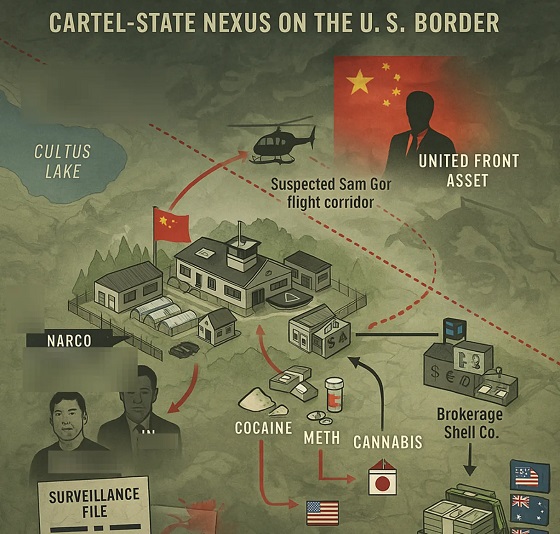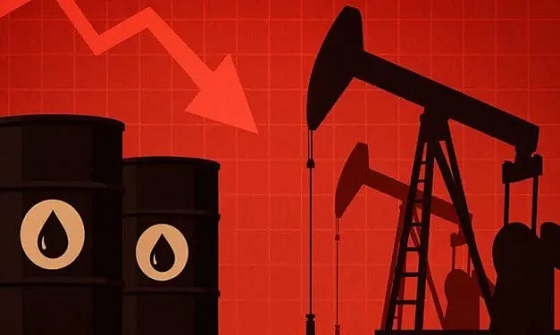Economy
Politics the only consistency in carbon tax policy
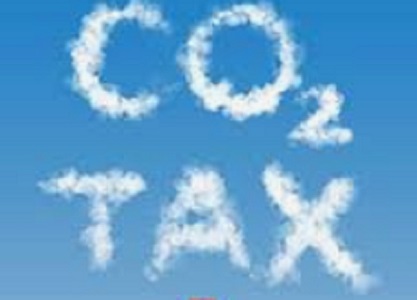
From the Frontier Centre for Public Policy
By Lee Harding
Never mind that there is no easy connection between CO2 and temperatures, except in […]
The misplaced idea that carbon dioxide is pollution undergirds the dubious concept of the carbon tax. Never mind that there is no easy connection between CO2 and temperatures, except in the easily questioned computer models created by climate change proponents. Nevertheless, the carbon tax policy is the signature climate change policy of the Trudeau Government. This tax has raised energy prices across the country and supercharged inflation without any impact on reducing harmless carbon dioxide emissions.
The main impact of the carbon tax is to reduce of everybody’s living standards just a bit more each year. Finally, it seems to have succeeded in doing something else: undermining Liberal support. The awkward attempt to solve this political and policy problem sent federal arguments for the carbon tax into complete contradiction last week.
On October 26 Prime Minister Justin Trudeau announced a three-year moratorium on carbon taxes for home heating oil, a move that was good politics but curious policy.
“We’ve heard clearly from Atlantic Canadians through our amazing Atlantic MPs that since the federal pollution price came into force … certain features of that pollution price needed adjusting to work for everyone,” said Trudeau.
You see, last July Atlantic provinces had to give Ottawa worthy proposals to keep themselves out of Ottawa’s carbon pricing scheme. They failed, so their citizens have felt the pinch. Forty percent of Atlantic Canadians, but only three percent of all Canadians use fuel oil.
This reality facilitated a political solution–a national policy with mostly regional consequences for Liberal support. The problem was how to spin it.
“We are doubling down on our fight against climate change and…supporting Canadians while we fight climate change,” the PM said.
“Economists and experts around the world have long known that putting a price on carbon emissions is the best way to drive down those emissions that cause climate change, is the cheapest, most efficient and most impactful way and it’s working,” the PM insisted.
This circle can’t be squared, except politically. The fuel oil announcement was made hours before Conservative Leader Pierre Poilievre held his scheduled “Axe the Tax” rally against carbon taxes in Windsor, N.S., the riding of Liberal Atlantic Caucus chair Kody Blois.
Put together, this is a national but regional policy to adjust a carbon tax that works but does not work. It’s doubtful that taxes or grants will change the weather, of course, but fuel oil was unworthy of an exemption.
The heat output per gallon of fuel oil is 138,690 British Thermal Units and almost equal to that of natural gas (139,050 BTU). However, natural gas only produces 117 lbs of CO2 per million BTU, whereas distillate fuel oil produces more than 160 lbs. The worst “polluters” just got a break.
Meanwhile, residents west of Quebec, where natural gas use ranges from 49 to 77 per cent, will pay carbon taxes, as they always have–and more so as they increase every April. It’s moves like this that have allowed a federal government to maintain power that hasn’t won the popular vote since 2015.
Poilievre’s plan to end the carbon tax is a winner for policy sanity.
Lee Harding is a Research Fellow at the Frontier Centre for Public Policy.
Business
Ottawa foresees a future of despair for Canadians. And shrugs

This article supplied by Troy Media.
 By Lee Harding
By Lee Harding
A government report envisions Canadians foraging for food by 2040. Ottawa offers no solutions, just management of national decline
An obscure but disturbing federal report suggests Canadians could be foraging for food on public lands by 2040.
Policy Horizons Canada released the dire forecast on Jan. 7, 2025, in a report entitled Future Lives: Social Mobility in Question. It went largely unnoticed at the time, but its contents remain deeply concerning and worth closer examination.
Policy Horizons Canada is a little-known federal think-tank within the public service that produces long-term strategic foresight to guide government decision-making. Though not a household name, its projections can quietly shape policies at the highest levels. It describes itself as the government’s “centre of excellence in foresight,” designed to “empower the Government of Canada with a future-oriented mindset and outlook to strengthen decision making.” Its current head is Kristel Van der Elst, former head of strategic foresight at the World Economic Forum.
The report warns that the “powerful promise” that anyone can get an education, work hard, buy property and climb the social and economic ladder is slipping away. Instead of a temporary setback, the authors argue, downward mobility could become the norm. They liken Canada’s future to a board game with “more snakes than ladders.”
“In 2040, upward social mobility is almost unheard of in Canada,” the report states. “Hardly anyone believes that they can build a better life for themselves, or their children, through their own efforts. However, many worry about sliding down the social order.”
While these scenarios aren’t firm predictions, foresight reports like this are intended to outline plausible futures. The fact that federal bureaucrats see this as realistic is revealing—and troubling.
Post-secondary education, the report suggests, will lose its appeal. Rising costs, slow adaptation to labour market needs, long program durations and poor job prospects will push many away. It predicts that people will attend university more to join the “elite” than to find employment.
Home ownership will be out of reach for most, and inequality between those who own property and those who don’t will drive “social, economic, and political conflict.” Inheritance becomes the only reliable path to prosperity, while a new aristocracy begins to look down on the rest.
The gap between what youth are told to want and what they can realistically expect will widen, fuelling frustration and apathy. As automation and artificial intelligence expand, many traditional white-collar jobs will be replaced by machines or software. “Most people (will) rely on gig work and side hustles to meet their basic needs,” the report warns.
This leads to one of the darkest predictions: “People may start to hunt, fish, and forage on public lands and waterways without reference to regulations. Small scale agriculture could increase.”
The authors don’t propose solutions. Instead, they ask: “What actions could be taken now to maximize opportunities and lessen the challenges related to reduced and/or downward social mobility in the future?”
That question should concern us. Policymakers aren’t being asked how to prevent the collapse of social and economic mobility but how to manage its
fallout. Are those envisioning Canada’s future more interested in engineering a controlled implosion than fostering hope and opportunity?
Yes, artificial intelligence will bring challenges and change. But there is no excuse for despair in a country as rich in natural resources as Canada. Besides, the 2021 income data used in the report predates even the release of the first version of ChatGPT.
If policymakers are serious about restoring upward mobility, they must prioritize Canada’s resource economy. Ports, pipelines, oil and gas development, and mining are essential infrastructure for prosperity. When these sectors are strangled by overregulation, investment dries up—and so do jobs. The oil patch remains one of the fastest paths from poverty to wealth. Entry-level jobs in the field require training and safety courses, not four-year degrees.
Similarly, post-secondary education doesn’t need to be as expensive or time consuming as it is now. We should return to models where nurses could earn certification in two years instead of being funnelled into extended university programs. And if governments required universities to wind down defined benefit pension plans, tuition would fall fast.
Unfortunately, there’s a real risk that policymakers will use reports like this to justify more wealth-killing socialism. A home equity tax, for example, might be pitched to avoid future tensions between renters and homeowners. Such a tax would require Canadians to pay an annual levy based on the increased value of their home even if they haven’t sold it. These policies don’t build wealth—they punish it, offering temporary relief in place of lasting progress.
Unless we choose a more sensible path, the controlled demolition of Canada will continue.
Lee Harding is a research fellow for the Frontier Centre for Public Policy.
Troy Media empowers Canadian community news outlets by providing independent, insightful analysis and commentary. Our mission is to support local media in helping Canadians stay informed and engaged by delivering reliable content that strengthens community connections and deepens understanding across the country
Economy
Canada’s Energy Wealth Is Bleeding South

From the Frontier Centre for Public Policy
Without infrastructure, Canada is losing billions while the U.S. cashes in on our oil and gas
Canada’s energy wealth is stuck in traffic, and our American neighbours are cashing in. It’s worse than that. Canada is bleeding millions of dollars daily because it lacks the infrastructure to export its natural resources efficiently.
While our oil and gas continue to flow—mainly to the United States—provinces like Alberta and British Columbia are forced to sell at steep discounts. This isn’t just an economic inefficiency; it’s a structural failure of national policy. The beneficiaries? American businesses and their governments which pocket the profits and tax revenues that should be circulating through the Canadian economy. This is no way to achieve economic sovereignty for Canada.
With U.S. interests reaping the rewards, this should have been a central talking point when Prime Minister Carney met with President Trump earlier this month.
Ottawa often offers the recent completion of the Trans Mountain Expansion (TMX) pipeline as an example of federal support for the energy sector. But such claims are misleading. Kinder Morgan, a private enterprise, had initially planned to build the extension without a penny from taxpayers. It withdrew only after being crippled by federal regulatory delays and political uncertainty.
Ottawa stepped in not as a benevolent saviour to help Albertans, but to prevent lawsuits and save face—ultimately overpaying for the pipeline and watching construction costs balloon to nearly six times the original estimate.
To now declare this bungled project a “gift” to Alberta, as a recent op-ed in the Toronto Star did, is not only tone-deaf: it’s an insult. It ignores the fact that Alberta’s taxpayers helped finance the very project Ottawa botched. It also reveals an astonishing lack of understanding of the historical, economic and political dynamics at play between Ottawa and Western Canada.
The tragedy is that TMX, despite its importance, is insufficient. Our infrastructure bottlenecks remain. With each passing day, Canada forfeits wealth that could fund essential improvements in health care, education and national defence.
According to the Frontier Centre for Public Policy, which has developed a real-time tracker to monitor these losses, the price differential between what we could earn on global markets versus what we settle for domestically adds up to $26.5 billion annually.
Ottawa’s reluctance to greenlight new infrastructure is a primary cause of this problem. Ironically, the losses from this reluctance in a single year would be enough to pay for another TMX, mismanaged or not. The solution lies in a national commitment to building utility corridors: designated routes that facilitate the movement of energy, goods and services unhindered across provincial boundaries.
Carney’s recent promise to remove all interprovincial trade barriers by July 1 is a nice soundbite. But unless it includes meaningful infrastructure commitments, it is bound to fail like every other rhetorical flourish before it.
Canadians should be rightly skeptical. After all, what Ottawa has failed to achieve in the 157 years since Confederation is unlikely to be accomplished in the next 60 days.
The political math doesn’t help either. The Bloc Québécois holds the balance of power in the 45th Parliament, and its obstructionist stance on national pipeline development ensures the advent of more gridlock, not less. The federal government continues to uphold Bill C-69—dubbed the “no-pipelines bill”—further entrenching the status quo.
Meanwhile, Canada remains in the absurd position of relying on U.S. infrastructure to transport oil from the West to Ontario and Quebec. This undermines our economic independence, energy security and national sovereignty. No amount of “elbows up” will correct this enormous gap.
If the prime minister is serious about transforming Canada’s economic landscape and making the country strong, he must bypass the Bloc by cooperating with the Official Opposition. A grand bargain focused on utility corridors, interprovincial infrastructure and national trade efficiency would serve Alberta, Saskatchewan, and every Canadian who depends on a strong and self-reliant economy.
The stakes are high. We need a more productive country to face challenges within Canada and from abroad. Billions in lost revenue could fund new hospitals, more schools and better military readiness.
Instead, along with the limited exports of oil and gas, we’re exporting great opportunities to middlemen—and greater economic strength—south of the border.
The path forward is clear. A strong, self-reliant Canada needs infrastructure. It needs corridors. It needs leadership.
Marco Navarro-Genie is the vice president of research at the Frontier Centre for Public Policy. He is coauthor, with Barry Cooper, of Canada’s COVID: The Story of a Pandemic Moral Panic (2023).
-

 Energy2 days ago
Energy2 days agoOil tankers in Vancouver are loading plenty, but they can load even more
-

 Alberta2 days ago
Alberta2 days agoEnergy projects occupy less than three per cent of Alberta’s oil sands region, report says
-

 Alberta2 days ago
Alberta2 days agoCharges laid in record cocaine seizure
-

 Energy2 days ago
Energy2 days agoCarney’s energy superpower rhetoric falls flat without policy certainty
-
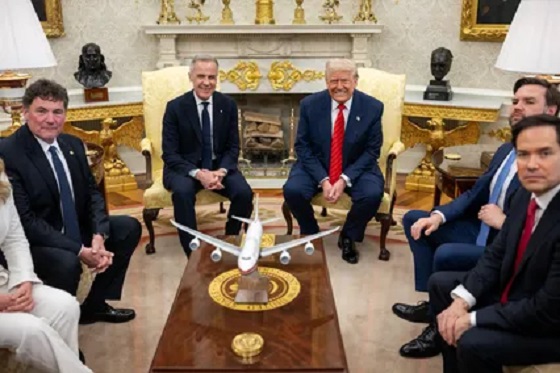
 conflict2 days ago
conflict2 days agoWATCH: U.S. ending bombing campaign on Yemeni militant group
-
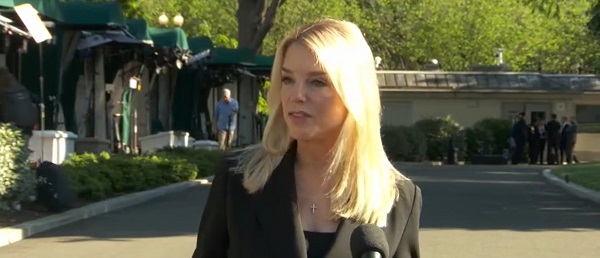
 Crime2 days ago
Crime2 days agoPam Bondi Reveals What The Holdup Is With Epstein File Release
-

 Business1 day ago
Business1 day agoInnovative Solutions Like This Plan To Provide Power For Data Centres Will Drive Natural Gas Demand For Decades
-
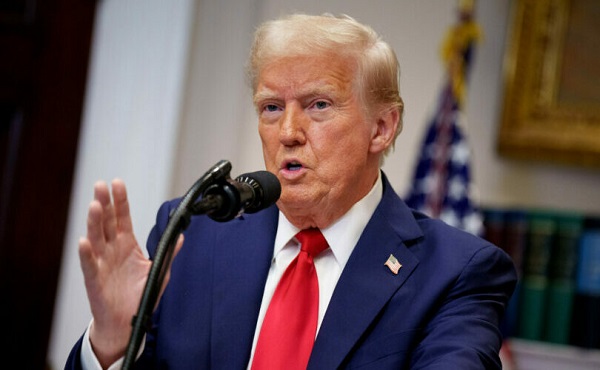
 Business12 hours ago
Business12 hours agoTrump announces UK will fast-track American products under new deal
